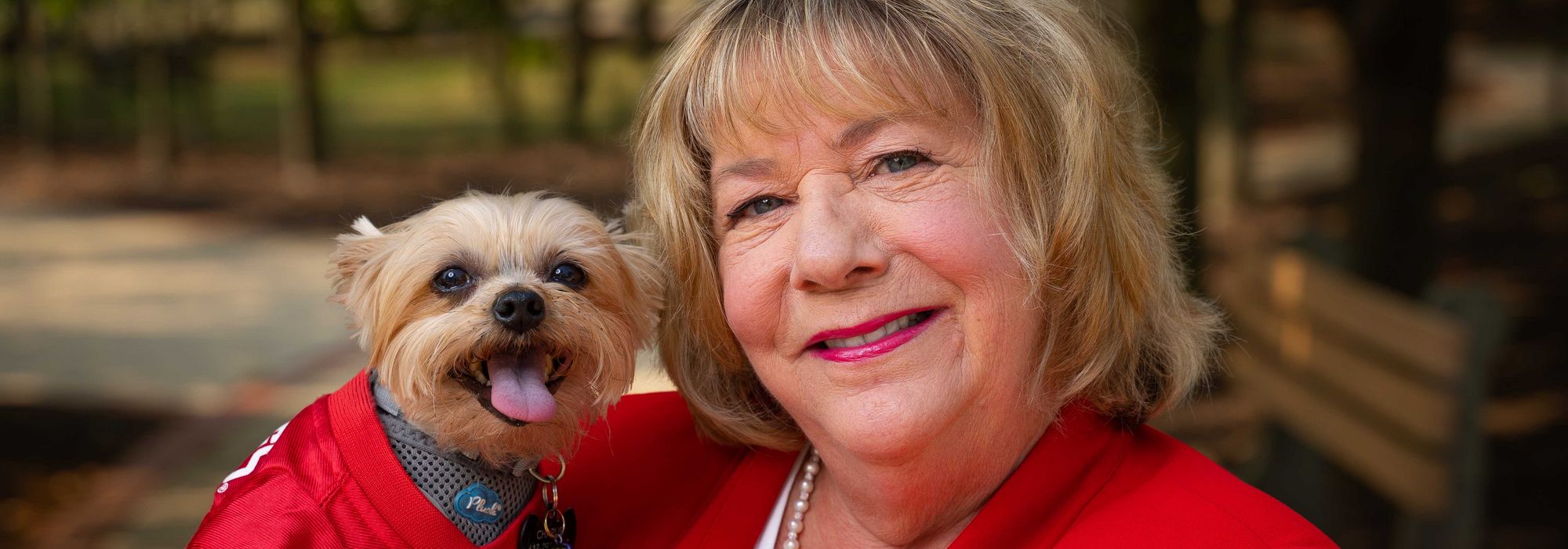
Evidence-based Practice
by Susan Neale
Linda Connor’s passion for evidence-based practice (EBP) began in 1999 at her first EBP workshop when she learned that it took, on average, 17 years to move new knowledge generated by clinical research into practice. This statistic might seem abstract to some, but for Connor, who was then a nurse manager at Boston Children’s Hospital, it was galvanizing.
“You’ve got to be kidding me!” she said, remembering how she felt that day. “If I were a parent, and there was knowledge how to better take care of my kid, and my child wasn’t receiving that good care because nurses weren’t looking at research – I would not be happy.”
“Ever since then,” she said, “I’ve been part of the EBP movement.”
Her passion for EBP led Connor to develop staff courses and internships in EBP at Boston Children’s, to become an EBP facilitator for CTEP (the Helene Fuld Health Trust National Institute for EBP’s precursor) in 2014 and to earn a PhD with a dissertation on EBP and policy in 2017.
Three years ago, Connor took a leap of faith to pursue her passion for EBP further. She came to Ohio State for a post-doctoral fellowship in EBP at the Fuld Institute for EBP, leaving behind her position as staff nurse III and mentor for staff nurses in the perioperative program at Boston Children’s, where she’d worked for 28 years.
How does this Boston native feel about her new home? “I love, love, love it,” she said. “I feel like I’ve won the lottery.” This year she joined our faculty as assistant professor of clinical practice and also works on special projects and helps with immersions at the Fuld Institute for EBP.
Her position at the Fuld Institute for EBP allows her to live her dream of getting evidence-based healthcare to the people who need it in real time. The COVID-19 crisis left hospitals everywhere scrambling for data on best practices, and the Fuld Institute for EBP answered that call with webinars and information on their website about masks, staffing ratios, team nursing and practical pandemic care. The first webinar, Connor said, could hold 300 participants; 800 registered.
“We had to figure out how to get a bigger Zoom room. People were starving for this information!”
It’s the kind of work she likes to do. “I love to encourage people to grow professionally. I get to do that through EBP,” she said with a hearty laugh as she picked up her little yorkie, Charlie, who is often seen around campus with her.
See the Fuld Institute’s evidence-based COVID-19 resources, including recorded webinars at: fuld.nursing.osu.edu/covid19resources.
EBP goes online
When the COVID-19 pandemic hit, it became clear to the Fuld Institute for EBP team that online EBP immersions were the only way to continue their mission of improving healthcare quality and safety through EBP across the country. Previously, institutions that wanted to incorporate EBP deeply into their culture as standard of care would send people to Columbus for a week-long immersion, or the Fuld Institute for EBP team would travel to conduct an onsite immersion.
Luckily, the team already had practiced an online format, with their innovative largest-ever immersion in September 2019, which was fully online and simultaneously served 18 Veterans Administration healthcare sites across the country.
This June, the Fuld Institute for EBP started hosting EBP immersions again, fully online. “The crisis has created many possibilities and opened access for this program,” said Chief Operating Officer and Clinical Core Director Lynn Gallagher-Ford, PhD, RN, NE-BC, DPFNAP, FAAN. Institutions can now purchase a “table” for eight participants to attend an online immersion. Each table has its own dedicated EBP mentor from the Fuld Institute for EBP team who meets with them in small sessions and tailors the material to that institution’s culture. “Now any organization anywhere can attend an immersion,” Gallagher-Ford said. Another silver lining: because online immersion participants have no travel expenses, many people can now afford to attend immersions who previously could not. That means organizations are signing up to send more people to immersions, too.
“Abraham Lincoln once said that the best way to predict the future is to create it. Although our Fuld National Institute is steeped in evidence-based decision-making and practice, it also emulates innovation,” said Executive Director of the Fuld Institute for EBP Bern Melnyk, PhD, APRN-CNP, FNAP, FAANP, FAAN, “It didn’t take long for our awesome team to innovate new solutions during these challenging times to carry on our impactful work – we didn’t miss a beat!”
In this issue
- Improving Health Inequities Through Our Research
- Hotspot: New York City
- Going the Extra Mile
- From Sick Care to Well Care
- COVID-19 Challenges Inspire Solutions
- Caring & Creativity
- Evidence-based Practice
- Building Relationships with Olivia Cotton
- Young Alumni Blog
- Homecoming 2020
- Sandra Cornett
- Coping with COVID-19
